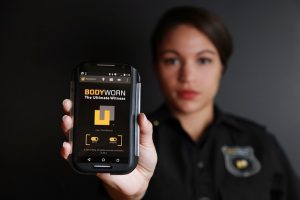Have you ever heard a police officer or special agent in a TV show, such as NCIS, Law and Order, or CSI say the words, “You have the right to remain silent. Everything you say can and will be used against you in a court of law. You have the right to an attorney. If you cannot afford an attorney, one will be appointed to you,” or a version of that? Those are called your Miranda Rights or your Miranda Warnings, derived from the 5th and 6th Amendments of the United States Constitution.
Your 5th and 6th Amendment rights are very important to know if confronted by a legal situation. For example, the police show up at your door and ask you what you know about a possible crime in the area. Do you have to answer their questions?
The simple answer is no, you can inform the police you do not want to answer their questions. Put yourself in this situation. At this point, you do not know if the police consider you a suspect or if they are only searching for information about a possible crime. Voluntarily choosing to not speak with the police about a criminal matter is not a crime.
 Orlando Criminal Lawyer Blog
Orlando Criminal Lawyer Blog


